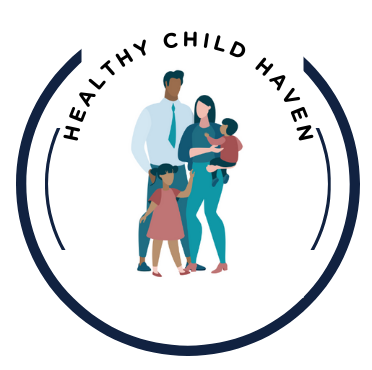Back in 2005, my life took an unexpected turn. My son, only 2 years old at the time, was believed to be on the Autism Spectrum. This revelation came from a seasoned team of speech therapists and set us on a path that would define the next several years of our lives. Thus began an all-consuming dive into research, therapies, and alternative approaches.
I’m here to help you with the insights I’ve gathered from that pivotal time. Our story isn’t just about challenges, it’s also about triumph and enlightenment. As it turns out, my son’s condition was better defined as a Language Disorder, not autism. With a combination of diet intervention and persistent speech therapy, we watched his world transform – the results were astonishing.
You’re going to find out about the strategies that changed our lives, but I must emphasize, what I share isn’t a magic bullet. I’m not promising a universal remedy, but I do believe that many can glean something valuable from our experiences, whether they’re on the spectrum or not.
I truly believe there are other behavioral issues in children today that diet alone could help remedy or at least quell some of their issues.
Choose something that resonates with you from my experiences, and you might just see the positive impact it can have. I’ll be transparent about the mistakes made along the way because those too are lessons worth sharing. So, if you’re curious about how dietary changes and the right supplements can make a difference, stay tuned for what’s to come in the next section.
Some Characteristics of Autism
Autism is characterized by delays in the development of social and communication skills. Parents may note symptoms as early as infancy, although the typical age of onset is by 3 years of age.
Spotting the symptoms early is crucial for managing ASD effectively. Typical signs might include difficulties with communication, repetitive behaviors, and challenges with social interactions. Early diagnosis can make a significant difference in the support that individuals receive, paving the way for better outcomes.
Every child should receive well-child check-ups with a pediatrician or an early childhood health care provider. The American Academy of Pediatrics recommends that all children receive screening for developmental delays at their 9-, 18-, and 24- or 30-month well-child visits, with specific autism screenings at their 18- and 24-month well-child visits. A child may receive additional screening if they have a higher likelihood of ASD or developmental problems. Children with a higher likelihood of ASD include those who have a family member with ASD, show some behaviors that are typical of ASD, have older parents, have certain genetic conditions, or who had a very low birth weight.
Daily life for someone with autism spectrum disorder can be challenging. Tasks that others might find simple could require significant effort. Imagine needing a structured routine for comfort or struggling with sensory overload in everyday situations. Support systems and tailored interventions can greatly improve quality of life.
The Role of Dietary Supplements in ASD Management

Dietary supplements are often recommended as part of the management plan for ASD. Popular choices include omega-3 fatty acids, and probiotics. These supplements aim to target specific symptoms and support overall health.
Scientific evidence backs the use of some of these supplements. For instance, omega-3s are known for supporting brain health and improving behavior, However, more research is needed to fully understand their impact on ASD.
I introduced the above-mentioned supplements to my son’s diet along with others and used the book written by Dr. William Shaw, “Biological Treatments for Autism and PDD” as my main go to for guidance. The reading was extensive and at times overwhelming as it is heavy with scientific jargon. At times it felt like information overload. In time, I was able to gather what I needed to move forward and felt I had the backing of scientists who were not afraid to raise questions and concerns related to the health of our children today.
Safety is a big concern when considering supplements. Not all supplements are created equal, and some could interact with medications or cause side effects. It’s important to choose high-quality products and consult with healthcare providers to ensure they’re safe.
Speaking with a well-versed healthcare provider willing to consider this approach before adding any supplement to a regimen is essential. They can provide personalized advice based on individual needs and medical history, ensuring the supplements are both effective and safe.
Integrating Dietary Changes with Overall ASD Treatment Plans
Not all health care providers will support you with wanting to try diet and supplements as a treatment attempt!!!
I was one of the lucky ones as our pediatrician witnessed the changes in my son’s overall behavior and increased language skills and asked me if other parents could call me so I could share my knowledge and support. There is one incident I want to share that is an insightful example of the disappointment one may face. I hope you do not experience this. After one of my son’s speech therapy sessions, she was amazed at his improvement after not seeing him for 3 weeks! She came out to the waiting area with her jaw a gaped, “I cannot get over his improvement!” I purposely didn’t tell her in advance and then I shared how we started with the GFCF diet. She shook her head in disbelief and said with a wave of her hand, ” yeah, I don’t believe in that stuff.” This was a woman who had come out of retirement to work part time and had at least 30 years of experience. I was disappointed and perplexed to say the least. So be aware that there are intelligent people out there that just can’t wrap their head around these simple approaches and cannot believe that foods in our diet can have such a negative impact.
Working closely with supportive healthcare and nutrition professionals ensures that dietary changes fit into the broader treatment plan. Collaborating with experts helps in crafting a cohesive approach that addresses all aspects of ASD management.
Monitoring progress is critical. Keeping track of dietary changes and their impact on symptoms allows for adjustments as needed. Regular check-ins with dietitians or healthcare providers can help fine-tune the approach.
Dietary strategies can complement other therapies such as behavioral therapy or occupational therapy. Combining these interventions creates a holistic support system that can provide significant benefits.
My son’s response was incredible. I took my time when eliminating foods as withdrawal from something like sugar is a real thing. Taking away his yogurt was my first step, but I had to get creative with a dairy free replacement. Results vary and if you think this is too much for you to consider trying, I perfectly understand. There have been children in the pediatrician’s practice that tried the diet and felt there was no real impact. But the key take away is that they tried.
Though the journey can be challenging, the long-term benefits are often worth it. Positive changes in diet and overall treatment plans can lead to improved quality of life.

This article shares a touching story about a mother and her son, who was diagnosed early with a language disorder that was first thought to be autism. It stresses the importance of early diagnosis, dietary changes, and having supportive healthcare providers. Personal stories make it relatable, showing both the struggles and successes they faced.
One of the article’s strengths is its focus on personalized care, acknowledging that every child’s experience is different. It discusses how dietary supplements and changes can lead to behavioral improvements, offering practical advice for parents looking for help.
It’s essential to remember that while diet can affect behavior, it should be part of a broader plan that includes professional support and proven therapies.
What changes have you noticed in children’s behavior related to their diet?
After removing milk from my 3-year-olds diet he slept through the night for the first time in a year. As a baby he slept fine, but things had changed. Then by day five his words more fluid, not perfect, but definitely an improvement in speech. Other therapies came into play, but diet was the first step that had the greatest impact.
Thank you so much for your insightful comments. It means so much.
Hi Maria,
Thank you for sharing your journey with your son. It’s inspiring to read about the challenges you faced and your commitment to exploring dietary interventions. Your insights on early diagnosis and the potential benefits of nutrition are incredibly valuable for other parents.
I can relate to autism from my time as an IT manager at a SEND organization, St John’s. Before this role, I had little knowledge of SEND or neurodiversity, so it felt a little like entering a circus! I was humbled to see the day-to-day challenges that ASD. Since those days, I myself see autism as a superpower!
Your openness about the skepticism you encountered from some healthcare providers is important. It’s frustrating when simple solutions are dismissed, especially when they can lead to significant improvements. Your story exemplifies how positive changes can improve quality of life.
Warm regards,
Lorne
Thank you Lorne for taking the time to read my post. Its heartwarming to hear of your experiences as an IT manager and how you saw the challenges people can face and learning that certain traits of ASD are a superpower.
I really do believe that my approach is worth trying and could possibly help with many challenges of varying degrees that children face today, whether officially on the spectrum or not. Changing the diets of kids and even for adults, is not an easy task, but the benefits could be so worth it.
Thanks for noting the skepticism I faced from some healthcare providers. That was 20 years ago and it feels cathartic now to write these posts. I so want others to know not to give up in feeling supported. Your kind insight is so appreciated.